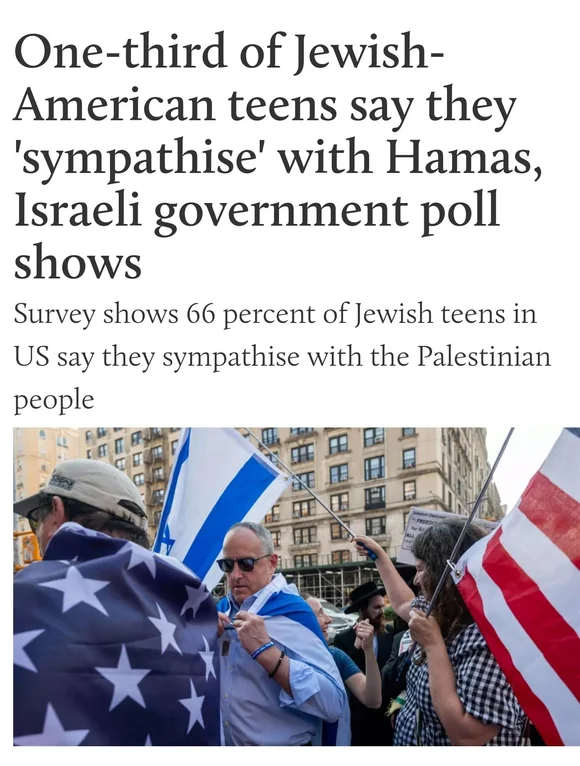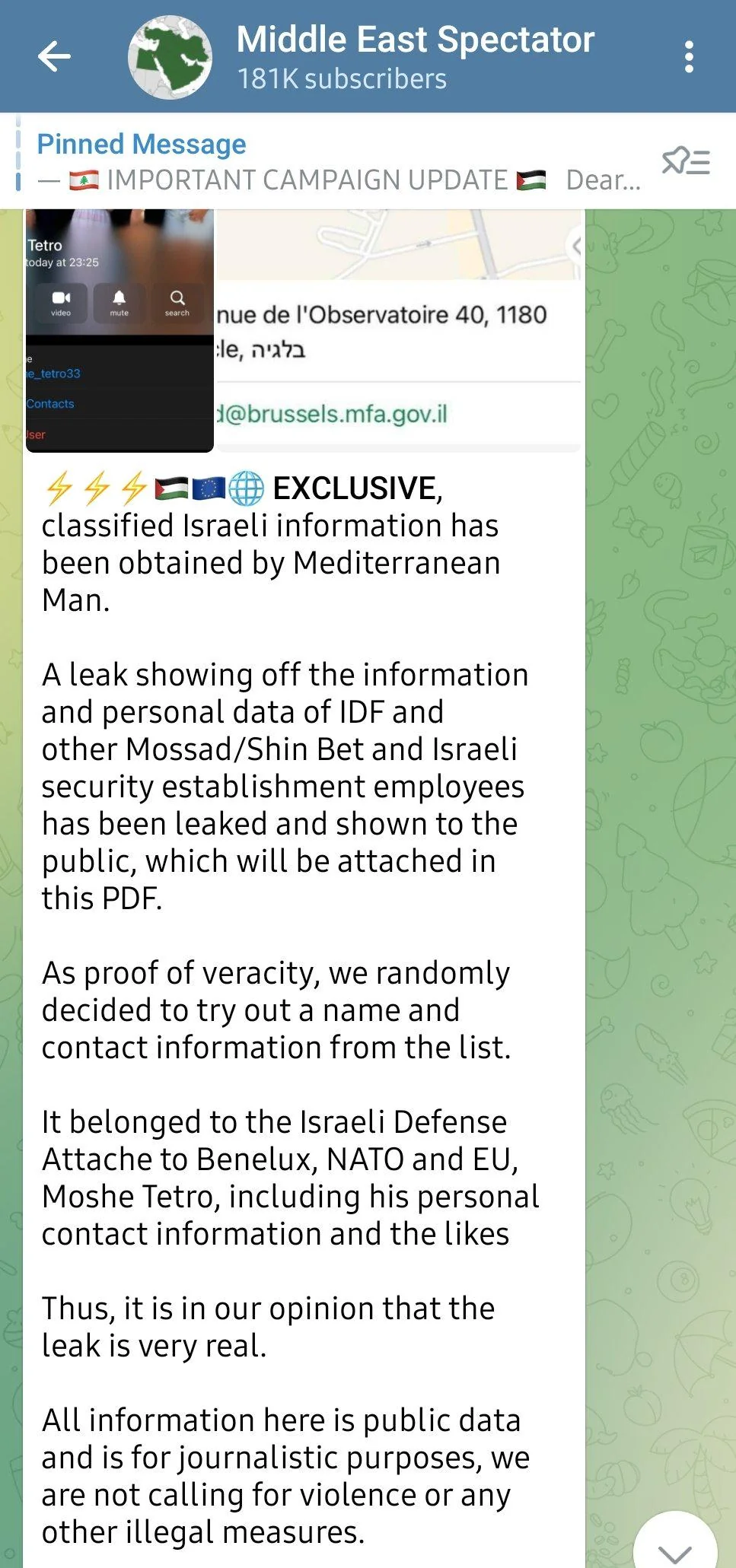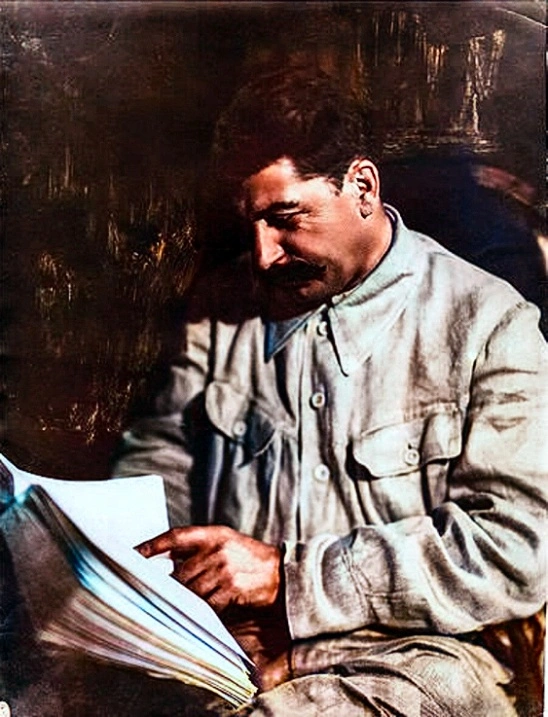back in my map era, we’re ukrainemaxxing right now
Declarations of the imminent doom of Ukraine are a news megathread specialty, and this is not what I am doing here - mostly because I’m convinced that whenever we do so, the war extends another three months to spite us. Ukraine has been in an essentially apocalyptic crisis for over a year now after the failure of the 2023 counteroffensive, unable to make any substantial progress and resigned to merely being a persistent nuisance (and arms market!) as NATO fights to the last Ukrainian. In this context, predicting a terminal point is difficult, as things seem to always be going so badly that it’s hard to understand how and why they fight on. In every way, Ukraine is a truly shattered country, barely held together by the sheer combined force of Western hegemony. And that hegemony is weakening.
I therefore won’t be giving any predictions of a timeframe for a Ukrainian defeat, but the coming presidency of Trump is a big question mark for the conflict. Trump has talked about how he wishes for the war to end and for a deal to be made with Putin, but Trump also tends to change his mind on an issue at least three or four times before actually making a decision, simply adopting the position of who talked to him last. And, of course, his ability to end the war might be curtailed by a military-industrial complex (and various intelligence agencies) that want to keep the money flowing.
The alignment of the US election with the accelerating rate of Russian gains is pretty interesting, with talk of both escalation and de-escalation coinciding - the former from Biden, and the latter from Trump. Russia very recently performed perhaps the single largest aerial attack of Ukraine of the entire war, striking targets across the whole country with missiles and drones from various platforms. In response, the US is talking about allowing Ukraine to hit long-range targets in Russia (but the strategic value of this, at this point, seems pretty minimal).
Additionally, Russia has made genuine progress in terms of land acquisition. We aren’t talking about endless and meaningless battles over empty fields anymore. Some of the big Ukrainian strongholds that we’ve been spending the last couple years speculating over - Chasiv Yar, Kupiansk, Orikhiv - are now being approached and entered by Russian forces. The map is actually changing now, though it’s hard to tell as Ukraine is so goddamn big.
Attrition has finally paid off for Russia. An entire generation of Ukrainians has been fed into the meat grinder. Recovery will take, at minimum, decades - more realistically, the country might be permanently ruined, until that global communist revolution comes around at least. And they could have just made a fucking deal a month into the war.
Please check out the HexAtlas!
The bulletins site is here!
The RSS feed is here.
Last week’s thread is here.
Israel-Palestine Conflict
Sources on the fighting in Palestine against Israel. In general, CW for footage of battles, explosions, dead people, and so on:
UNRWA reports on Israel’s destruction and siege of Gaza and the West Bank.
English-language Palestinian Marxist-Leninist twitter account. Alt here.
English-language twitter account that collates news.
Arab-language twitter account with videos and images of fighting.
English-language (with some Arab retweets) Twitter account based in Lebanon. - Telegram is @IbnRiad.
English-language Palestinian Twitter account which reports on news from the Resistance Axis. - Telegram is @EyesOnSouth.
English-language Twitter account in the same group as the previous two. - Telegram here.
English-language PalestineResist telegram channel.
More telegram channels here for those interested.
Russia-Ukraine Conflict
Examples of Ukrainian Nazis and fascists
Examples of racism/euro-centrism during the Russia-Ukraine conflict
Sources:
Defense Politics Asia’s youtube channel and their map. Their youtube channel has substantially diminished in quality but the map is still useful.
Moon of Alabama, which tends to have interesting analysis. Avoid the comment section.
Understanding War and the Saker: reactionary sources that have occasional insights on the war.
Alexander Mercouris, who does daily videos on the conflict. While he is a reactionary and surrounds himself with likeminded people, his daily update videos are relatively brainworm-free and good if you don’t want to follow Russian telegram channels to get news. He also co-hosts The Duran, which is more explicitly conservative, racist, sexist, transphobic, anti-communist, etc when guests are invited on, but is just about tolerable when it’s just the two of them if you want a little more analysis.
Simplicius, who publishes on Substack. Like others, his political analysis should be soundly ignored, but his knowledge of weaponry and military strategy is generally quite good.
On the ground: Patrick Lancaster, an independent and very good journalist reporting in the warzone on the separatists’ side.
Unedited videos of Russian/Ukrainian press conferences and speeches.
Pro-Russian Telegram Channels:
Again, CW for anti-LGBT and racist, sexist, etc speech, as well as combat footage.
https://t.me/aleksandr_skif ~ DPR’s former Defense Minister and Colonel in the DPR’s forces. Russian language.
https://t.me/Slavyangrad ~ A few different pro-Russian people gather frequent content for this channel (~100 posts per day), some socialist, but all socially reactionary. If you can only tolerate using one Russian telegram channel, I would recommend this one.
https://t.me/s/levigodman ~ Does daily update posts.
https://t.me/patricklancasternewstoday ~ Patrick Lancaster’s telegram channel.
https://t.me/gonzowarr ~ A big Russian commentator.
https://t.me/rybar ~ One of, if not the, biggest Russian telegram channels focussing on the war out there. Actually quite balanced, maybe even pessimistic about Russia. Produces interesting and useful maps.
https://t.me/epoddubny ~ Russian language.
https://t.me/boris_rozhin ~ Russian language.
https://t.me/mod_russia_en ~ Russian Ministry of Defense. Does daily, if rather bland updates on the number of Ukrainians killed, etc. The figures appear to be approximately accurate; if you want, reduce all numbers by 25% as a ‘propaganda tax’, if you don’t believe them. Does not cover everything, for obvious reasons, and virtually never details Russian losses.
https://t.me/UkraineHumanRightsAbuses ~ Pro-Russian, documents abuses that Ukraine commits.
Pro-Ukraine Telegram Channels:
Almost every Western media outlet.
https://discord.gg/projectowl ~ Pro-Ukrainian OSINT Discord.
https://t.me/ice_inii ~ Alleged Ukrainian account with a rather cynical take on the entire thing.
Everyone should read this post on how finance, bonds and the power of the US dollar actually works by @[email protected]. This is a highly readable and clear description of arcane and opaque mechanisms that are critical to appreciate to have a good understanding of modern imperialism.
Please respond in that subthread, not here.

More than one-third of American-Jewish teenagers between the ages of 14 and 18 agree with the statement, “I sympathise with Hamas”
vs
A majority, 66 percent, said that they sympathise with the Palestinian people as a whole.
Young american jews support the resistance in great numbers.


https://xcancel.com/RnaudBertrand/status/1858019192370507904
Wow, looks like Xi was extremely straightforward during his meeting with Biden, probably the most he’s ever officially been in a meeting with a US president.
According to the Chinese readout (https://www.guancha.cn/internation/2024_11_17_755645.shtml) here’s what he told Biden were the 7 “lessons of the past 4 years that need to be remembered”:
- "There must be correct strategic understanding. The ‘Thucydides Trap’ is not historical destiny, a ‘new Cold War’ cannot and should not be fought, containment of China is unwise, undesirable, and will not succeed."
- "Words must be trustworthy and actions must be fruitful. A person cannot stand without credibility. China always follows through on its words, but if the U.S. side always says one thing and does another, it is very detrimental to America’s image and damages mutual trust."
- "Treat each other as equals. In exchanges between two major countries like China and the United States, neither side can reshape the other according to their own wishes, nor can they suppress the other based on so-called ‘position of strength,’ let alone deprive the other of legitimate development rights to maintain their own leading position."
- “Red lines and bottom lines cannot be challenged. As two major countries, China and the United States inevitably have some contradictions and differences, but they cannot harm each other’s core interests, let alone engage in conflict and confrontation. The One China principle and the three China-US joint communiqués are the political foundation of bilateral relations and must be strictly observed. Taiwan issue, democracy and human rights, development path, and development rights are China’s four red lines, which cannot be challenged. These are the most important guardrails and safety nets for China-US relations.”
- “There should be more dialogue and cooperation. Under current circumstances, the common interests between China and the United States have not decreased but increased. Whether in areas of economy and trade, agriculture, drug control, law enforcement, public health, or in facing global challenges such as climate change and artificial intelligence, as well as international hotspot issues, China-US cooperation is needed. Both sides should extend the list of cooperation, make the cooperation cake bigger, and achieve win-win cooperation.”
- “Respond to people’s expectations. The development of China-US relations should always focus on the wellbeing of both peoples and gather the strength of both peoples. Both sides should build bridges for personnel exchanges and cultural communication, and also remove interference and obstacles, not artificially create a ‘chilling effect.’”
- “Demonstrate great power responsibility. China and the United States should always consider the future and destiny of humanity, take responsibility for world peace, provide public goods for the world, and play a positive role in world unity, including engaging in positive interaction, avoiding mutual consumption, and not coercing other countries to take sides.”
Funnily, all this is summarized in the official US readout (https://china.usembassy-china.org.cn/readout-of-president-joe-bidens-meeting-with-president-xi-jinping-of-the-peoples-republic-of-china-3/) with this short sentence: “The two leaders reviewed the bilateral relationship over the past four years”. Talk about an understatement 😅. The language compared to the readout of the last Xi-Biden meeting in San Francisco one year ago is noticeably more forthright, especially on the U.S.'s lack of trustworthiness (“if the U.S. side always says one thing and does another…”). Looks like he’s getting very frustrated with U.S. duplicity… The 4 red lines he enumerates are also new (not new individually as they’ve each been mentioned before, but packaging them together as “four red lines” and explicitly labeling them as such in a president-level diplomatic readout is new)
…
With the red lines on “Democracy and human rights” and “Development path/system”, it looks like China is effectively telling the U.S. it will not humor them anymore in discussions about its internal system and so-called “human rights”, and that it will consider any U.S. initiative aimed at interfering with China’s internal affairs or otherwise shape China as hostile actions on the same level as Taiwan. This is also clear with Xi telling Biden that “neither side can reshape the other according to their own wishes”.
On development rights Xi states that “the Chinese people’s right to development cannot be deprived or ignored” and criticizes how “while all countries have national security needs, the concept shouldn’t be overgeneralized or used as an excuse for malicious restrictions and suppression”. He also said that “great power competition should not be the theme of the era; unity and cooperation are needed to overcome difficulties together. 'Decoupling and breaking chains” is not the solution; mutually beneficial cooperation is the path to common development. ‘Small yards with high fences’ is not befitting of great powers."
In other words, he’s telling Biden that he believes the U.S. is attempting to curtail China’s development in the guise of national security, but that this is “an excuse for malicious restrictions and suppression” and a red line as China has a fundamental right to develop as any other country. This is all, of course, also signaling to the upcoming Trump administration. The fact these are “red lines” means they’re non-negotiable regardless of who leads the US: he’s telling Trump too that attempts to “reshape” China or restrict its development will be viewed as hostile actions. And the emphasis on US “saying one thing and doing another” also puts the future administration on notice that China will judge the US by its actions rather than its diplomatic statements.
Conclusion: by framing these positions as “lessons learned” from the past four years, Xi is effectively closing the book on one approach to US-China relations - which he’s obviously very critical about - and very clearly signaling to Trump a change is badly needed, particularly around the “4 red lines” and matching words with actions. The language is very confident, telling the U.S. they need to “treat each other as equals” and that they have no “position of strength” anymore. The US readout on this, as usual for the Biden administration, is very illustrative of exactly what Xi is complaining about: a complete disregard for China’s stance on these issues and a refusal to engage with them, or even mention them at all. Not sure that “America first” Trump and the team of China hawks he put together will be much better…
Gangs looting Gaza aid operate in areas under Israeli control, aid groups say
A U.N. memo obtained by The Post concluded that gangs “may be benefiting from a passive if not active benevolence” or “protection” from Israel’s military.
One gang leader, the memo said, established a “military like compound” in an area “restricted, controlled and patrolled by the IDF.”
Israel is stealing what little aid they “let through”.
And they could have just made a fucking deal a month into the war.

Israel levelled multiple multi storey apartment buildings in Beirut, Lebanon last night/early this morning, and the scenes are apocalyptic. No evacuation order was given for this bombing, many were sleeping in the early hours of the morning when the buildings that they were sleeping in were destroyed. Hundreds of probable casualties.
Daytime footage twitter and xcancel mirror
Night search footage twitter and xcancel mirror
Ground view of night search footage, to put the scale of destruction into perspective twitter and xcancel mirror
Handala, an Iranian hacker group, in revenge for the killing of Yahya Sinwar, hacked the infamous ‘Israeli’ 8200 intelligence unit and released the info of over 35,000 Mossad, Shin Bet and other security establishment employees.

PDF of the leak: https://files.catbox.moe/3l1lkm.pdf
Meanwhile, FIFA and UEFA member “israel” killed a fuckton of FIFA-registered palestinian players in Gaza, dismantling a FIFA-regulated tournament in the process as well. You can sit comfortably waiting for them to take action against the zionist entity.
death to “israel”
Educational post: here we will debunk the myth of China’s dollar-denominated bonds in Saudi Arabia for those who are interested in learning about how the system actually works, and those who need a little help with connecting the dots.
A few months ago, some multipolar bloggers were jumping up and down about Saudi Arabia “ending its 50-year petrodollar contract” and how that is going to “end dollar hegemony” (I already wrote a whole post debunking that). Today we see the same people saying that China issuing dollar-denominated bonds in Saudi Arabia is actually genius and how that’s going to “end dollar hegemony”. So which one is it?
The answer is neither, and far simpler than you think. But to even be able to answer this question, we need to learn a bit about the fundamentals of the financial system, and especially to debunk the many misconceptions about the role of US treasury.
Don’t worry, I have deliberately stripped all technical jargons from this post, so anyone will be able to understand even if you know nothing about banking and finance. This post is meant to be educational - I firmly believe that learning about how the economy and the financial system operate can shield us from falling for right wing propaganda, and that is my goal of spending many hours writing this post here.
First, let’s lay out the main misconceptions that have been perpetuated on social media about the China’s dollar bond in Saudi Arabia, and what questions do we need to answer:
- The misconception that the US government is financed by its treasury bonds (China is issuing dollar bonds at nearly the same rates, so investors will buy China bonds instead of US treasury bonds, so the US government can no longer finance its spending)
- Question: What is the role of US treasuries?
- A wild extrapolation that a $2 billion bond issuance somehow serves as a prelude to China issuing a $100 billion dollar bond which will then subvert the entire US treasury market.
- Question: What can a $100 billion dollar bond do if China issues that?
- The mental gymnastics involved to craft a narrative about why China issuing its bond in dollar in Saudi Arabia is actually good and that somehow is going to help the BRI countries pay back their dollar debt.
- Questions: What is the intent behind China issuing dollar-denominated bond in Saudi Arabia? Can it really help Belt and Road countries pay back their dollar debt?
Let’s go through this point by point.
What is the role of US treasuries?
expand
Many people will tell you that a government needs to borrow (treasury issuing bonds/securities) to finance its spending. Here, we see the same narrative that if everyone stops buying US treasuries, the US government would not be able to finance its imperialism.
This is no different than the popular neoliberal myth perpetuated by both the Republicans and the Democrats that “we have to cut our spending and bring our deficits down because we have borrowed trillions of dollars from China!”
What they really mean is that “we have to cut funding to this and that public utilities and services so all the wealth can be concentrated to the top 0.1%”. In other words, myths like this allow the ruling class to institute austerity on the working people, otherwise “your children and grandchildren will become debt slaves to China who owns our country and they have to work so much harder to pay back our debt to China!”
Let’s dispel this myth once and for all by learning about where did this myth even comes from.
Do government have to borrow to finance its spending?
You see, a long time ago when governments peg their currencies to gold (or under Bretton Woods from 1944-1971, to US dollar which is in turn pegged to gold), they run on a fixed exchange rate. This means that the government promises that its currency can be exchanged for gold (or dollar) at a certain price. If the government cannot keep that promise, they will have to default, or depreciate the value of their currency (exchange rate goes down, imports become more expensive).
A main attraction of pegging your currency to a stable metal like gold, or another stable currency like the dollar, is that it helps boost the confidence and usage of your currency. This was especially true for post-war European countries after their economies had been wrecked by WWII, and those governments desperately needed their citizens to use their currencies again (that were worth very little because the productive capacities had been destroyed) instead of foreign currencies. And so during the Bretton Woods conference, they decided that their governments would peg their currencies to the dollar, and the dollar itself to gold, with the hopes that this will help stabilize the currency exchange rate and hence the development of their economies.
However, there is a huge problem when you run on a fixed exchange rate - you need to have a reserve of the metal/foreign currency in order to defend this exchange rate, and this quickly becomes a problem when it comes to fiscal operations (government spending):
Let’s say you are a government with $100 billion worth of gold reserve, and have issued $100 billion of your currency to circulate the economy. Now, you want to spend $10 billion to build new hospitals for the country, to improve the healthcare standards for the people. Of course, you can just print $10 billion and credit the bank accounts of contractors, raw material suppliers and manufacturers and let them get to work, but you will now have $110 billion circulating the economy with only $100 billion worth of gold reserve, and this is a problem because you do not have enough reserve to defend the fixed exchange rate you have set.
You have several options here:
One, you can increase gold supply
- search and dig for more gold
- purchase gold by exporting your goods and services made using your labor and resources to countries that have a lot of gold
- steal the gold by colonizing or invading other countries who have them
Two, you will have to somehow take $10 billion currency away from the economy.
There are two common ways to do this - first, increase the taxes so you can subtract $10 billion from the economy, which brings monetary base down to $90 billion, and this frees up the space for you to issue a new $10 billion currencies to build the new hospitals.
This is where the popular misconception that taxes finance government budget come from. But as you can see, the taxes really only serve the purpose of taking money out of the circulation so new money can be added to finance new projects. Those taxed money are instead destroyed in the central bank, contrary to the popular myth that they are being used to finance government spending.
Governments that can issue their own money don’t need your taxes - why would they do that if they can already print them? The purpose of taxation is to drive the value of your currency (you are forced to earn the currency because you have to pay taxes with them), and to re-distribute wealth within the society (rich people accumulating too much wealth? Tax them away so they don’t grow too powerful, not because the government needs to be financed by billionaires - of course this does not apply in governments that have been captured by the wealthy elites, but the concept of the power of the State still applies)
The second way is to issue government securities/bonds (in the US, this is known as the US treasury bills/notes/bonds). Instead of taking away your money which many people hate, here the government says: ”hey what if you give me some of your money and I’ll keep them safe for you and in a few years’ time when they mature, I’ll pay you back with interests?”
As you can see, the function of a government bond is the same as taxes - taking money out of circulation, except that instead of the money getting destroyed through taxation, your money is being safekept in a special government savings account (the government’s version of certificate of deposit) and you are not allowed to use them until the bond matures. Then you get your money back with interests.
Because the government is technically “borrowing” from you, this is known as government debt, and you are the creditor lending money to the government. This is where the popular misconception that government debt finances government spending comes from. But really, they just want to take some money out of the circulation so they can defend their exchange rate during new budget spending.
And finally, if the government cannot fulfill its promise of exchanging their currency at the price they have set with reference to gold/dollar, they will have to default, or depreciate the value of their currency.
The above was how they roll during the fixed exchange rate era, and where all these misconceptions about US treasuries comes from.
- The misconception that the US government is financed by its treasury bonds (China is issuing dollar bonds at nearly the same rates, so investors will buy China bonds instead of US treasury bonds, so the US government can no longer finance its spending)
around a dozen inmates have set themselves on fire over the last year or so to try to get transferred out of virginia’s supermax Red Onion prison after facing horrific racism and violence. three men interviewed intentionally set their legs or feet on fire knowing that there aren’t any burn centers in that part of the state and they would have to be sent to Richmond for treatment
The NYT has leaked a story by accidentally CC’ing Electronic Intifada.
Apparently, they killed a “visual investigation” into the recent Israeli hooligans in the Netherlands, presumably because it would go against their narrative of anti-Semitism at the event. Keep in mind that it was the Times that recently claimed a video of Israeli fans attacking a Dutch citizen was the opposite.
I happened to notice a Reddit article about Bird Flu and all the libs are just blaming Trump. He isn’t even president and Biden has been ignoring the bird flu for over a year now, with articles coming out every month about how Biden is doing NOTHING.
BlueMAGA is already getting incredibly powerful, I am now becoming hopeful that there will be a liberal Jan 6th.
Corbyn’s take yesterday:

Telesur Aleida Guevara expresó preocupación por reciente actitud de Lula hacia Venezuela
On Trump and Brazil vs Venezuela
What about the change of government in the United States, with the Democrats leaving and the Republicans returning to power? Will anything change for Cubans?
We say it’s the same dog with a different leash. The thing is, this man [Donald Trump] is crazy. We don’t know what he can do. Maybe he’ll come out saying that, since he’s a businessman, he wants to do business with Cuba, but who knows? Because that’s how this man is – he’s unpredictable. But in any case, it’s a danger, a serious danger, not only for Cuba, but for humanity, since that country [the United States] has destructive power and now that power will be in the hands of a man who doesn’t think, which can be very dangerous.
Brazil’s position after the presidential elections in Venezuela has been questioned by popular movements here in Brazil and in Latin America, because it questions the security of the electoral process. How do you assess this position?
It only benefits the enemy. It makes me very sad. I’m really ashamed that Lula has fallen into this situation. Firstly, because he has just acknowledged that he doesn’t even have the right to express an opinion on another country’s problems, because he wouldn’t want us, or any other country in the world, to express an opinion on Brazil. So, if you don’t like a behavior, how can you do that to someone else? It’s a basic principle of coexistence – pure and simple. They may have their own criteria and way of seeing the world, which must be respected. I don’t have anything to say about that. However, you have to respect them. You have to learn to respect your neighbors, even if you don’t like them. For example, we [Cubans] want to have relations with the United States, even though we have nothing to do with their government. We can make an effort and show solidarity. Respect other countries, as long as they respect us, because that’s a mutual principle. If you want respect, you have to learn to respect. It’s as simple as that.
That’s why it hurts so much. Brazil’s position regarding BRICS also hurts, because the country refuses to allow Venezuela to join the group. This is unprecedented. Brazil is simply playing into the hands of the United States of America, the enemy of all our peoples. Lula isn’t an ordinary president; he is a president who comes from grassroots movements, someone who comes from trade union struggles. So, Lula has to know what he’s doing. This is very painful for us, I mean it. It hurts us deeply and Lula’s attitude towards Venezuela disappointed us.








